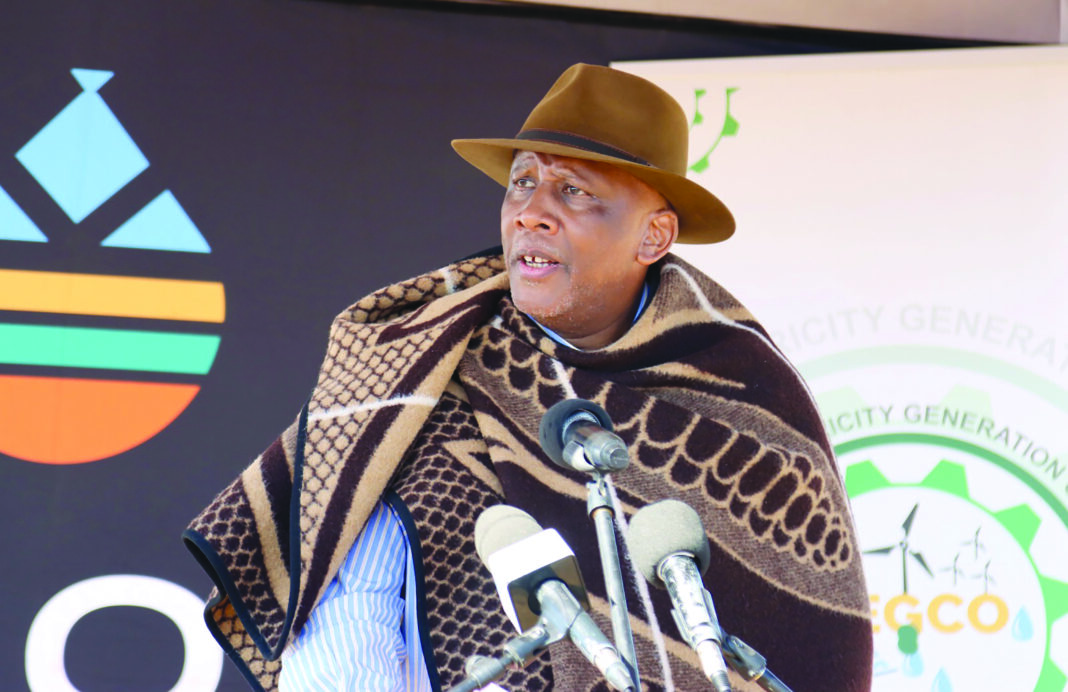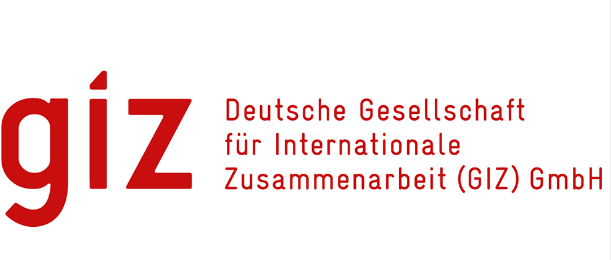Lehlohonolo Motsoari
The declining energy, food, and water security are taking a toll on Basotho livelihoods, His Majesty King Letsie III stated yesterday.
Despite efforts by various entities in the country, minimal impacts have been seen, largely due to operating in silos and using individualised evaluation strategies with unique objectives and methods, the King remarked.
He emphasised the need for Lesotho to adopt an approach that links all sectors responsible for natural resources management to achieve sustainable development goals (SDGs).
“The Government of Lesotho has, therefore, adopted the Integrated Catchment Management (ICM) programme in managing land and water resources within the country,” he said.
His Majesty delivered these remarks at Ha Ramarothole in Likhoele, Mafeteng.
ReNOKA, an organisation focusing on integrated catchment management (ICM), along with GIZ and the Lesotho Electricity Generation Company (LEGCO), have initiated a Public Private People Partnership (PPP) to enhance the resilience of the Ha Ramarothole Solar Power Plant through ICM.
Situated in Mafeteng, the plant is an 80MW solar photovoltaic project aimed at generating renewable energy for Lesotho’s national grid, bolstering energy security, and reducing dependence on imports. Implemented in two phases, Phase I (30MW) has been completed, while preparations for Phase II (50MW) are underway.
Approximately 260 hectares of land were acquired for the solar plant. However, the site faces a significant threat from erosion, characterised by dongas and gullies, jeopardising the government’s energy investment.
This erosion has damaged the boundary fence and some solar panel foundations.
In response, LEGCO sought support from ReNOKA to rehabilitate the degraded watershed and protect the investment.
Through the LECGO-ReNOKA partnership, ReNOKA is implementing erosion control measures from the sub-catchment peak to just above the solar park, aiming to reduce water quantity and velocity, which contribute to gully formations.
During the launch event of the agreement at the power plant, His Majesty addressed the audience, acknowledging the impact of climate change on weather patterns.
He said: “We live in times where weather patterns as we have known them, have been affected by climate change,” His Majesty said during the launch event.
He explained that developing countries were often more heavily impacted by the changing climate than developed countries.
“Therefore, it gives me great pleasure to witness partnerships such as the one we are launching today which strive towards increasing climate resilience of our land, people, and public infrastructure while at the same time producing clean energy,” he said.
He further stated that the partnership between ReNOKA & LEGCO has put communities at the heart of the protection of the watershed.
“This joint initiative reflects the ReNOKA movement and indeed the slogan i.e. ‘noka e tlatsoa ke linokana’,” the King indicated.
As the country celebrates 200 years of the Basotho nation, he emphasised the need to reflect on how Lesotho’s rich natural resource endowment can be shared sustainably with the region while also improving the livelihoods of Basotho.
He said Lesotho has long been recognised as the water tower of the region, but as this solar power plant at Ha Ramarothole highlights, “Lesotho also has the potential to supply green energy.”
“Natural resources are not restricted by district or international borders, and as such, the benefit of the energy produced here at Ha Ramarothole stands to benefit people across Lesotho and can eventually be exported to the SADC region,” he said.
Speaking at the same event, European Union (EU) ambassador, Paola Amadei, said: “Today marks another significant milestone in this shared journey as we witness the signing of a memorandum of understanding between the Lesotho Electricity Generation Company (LEGCO) and ReNoka.”
Amadei said the partnership was pivotal in safeguarding the Ha Ramarothole Solar Power Plant against land degradation, ensuring the longevity and resilience of Lesotho’s renewable energy infrastructure.
She mentioned that the area was threatened by severe erosion, undermining the integrity of the solar farm and jeopardising the significant investment made by the Government of Lesotho.
“The erosion, as we all witnessed this morning, not only compromises the boundary fence, but also the foundations of several solar panels,” she said.
Recognising the urgency of the situation, she said the Lesotho LEGCO sought assistance from ReNoka.
“Local communities are now implementing targeted measures to reduce the volume and speed of water runoff, and curb gully formations around the solar plant site,” she said.
“The partnership forged between ReNoka and LEGCO underscores the transformative potential of soil and water conservation for the long-term sustainability of public investments in critical infrastructure, particularly renewable energy projects,” she added.
According to Amadei, this undertaking embodies the key values of the Lesotho-Team Europe partnership, a partnership which she said is based on long-term sustainability and shared prosperity, as opposed to short-term gains built on fragile foundations.
“Ours is a partnership that stands for quality investments. This approach is at the heart of Global Gateway, the European strategy to boost smart, clean and secure links in digital, climate, energy and transport sectors and to strengthen health, education and research systems across the world,” she remarked.
German Head of Cooperation, Fabian Kyrieleis, said regionally, ReNOKA is a flagship initiative for a comprehensive Integrated Catchment Management approach that combines the restoration of land and water resources, the protection of the most vital ecosystems and the empowerment of local communities and national institutions.
“It aims for a coherent ICM Governance approach that overcomes silos and embraces multi-stake-holder partnerships like the one we are launching today,” Kyrieleis said.
He indicated that during the last three years ReNOKA has rehabilitated more than 565 hectares of watersheds, introduced and trained Catchment Planning Units (CPU) in nine out of 10 districts, established over 300 ICM community structures, fostered community-led ICM planning process and implementation of ICM measures in seven sub-catchments through the mobilisation of more than 3,800 community members.
Kyrieleis said: “The programme capacitated more than 4,400 stakeholders including decision-makers and technical staff from ministries, the private sector as well as community members on ICM.
“Furthermore, the livelihoods of more than 1,800 Basotho were strengthened through improved financial literacy and agricultural practices as well as better access to markets.”
Summary
- As the country celebrates 200 years of the Basotho nation, he emphasised the need to reflect on how Lesotho’s rich natural resource endowment can be shared sustainably with the region while also improving the livelihoods of Basotho.
- He said Lesotho has long been recognised as the water tower of the region, but as this solar power plant at Ha Ramarothole highlights, “Lesotho also has the potential to supply green energy.
- “Natural resources are not restricted by district or international borders, and as such, the benefit of the energy produced here at Ha Ramarothole stands to benefit people across Lesotho and can eventually be exported to the SADC region,” he said.

Your Trusted Source for News and Insights in Lesotho!
At Newsday Media, we are passionate about delivering accurate, timely, and engaging news and multimedia content to our diverse audience. Founded with the vision of revolutionizing the media landscape in Lesotho, we have grown into a leading hybrid media company that blends traditional journalism with innovative digital platforms.







